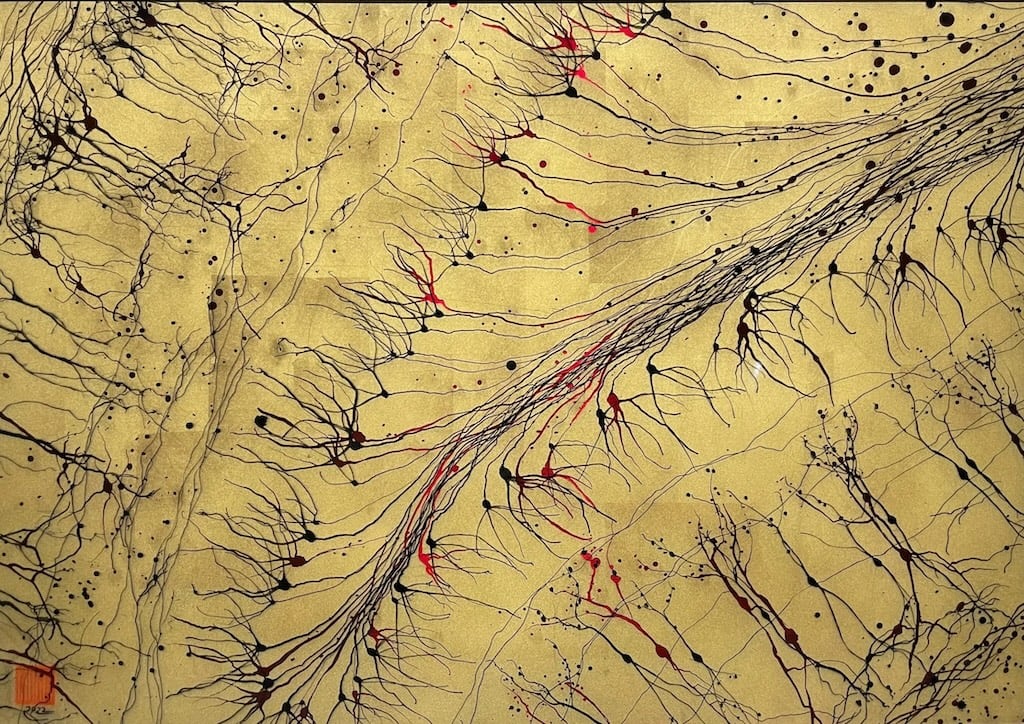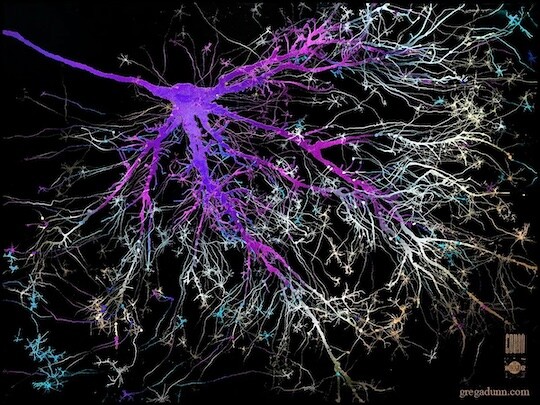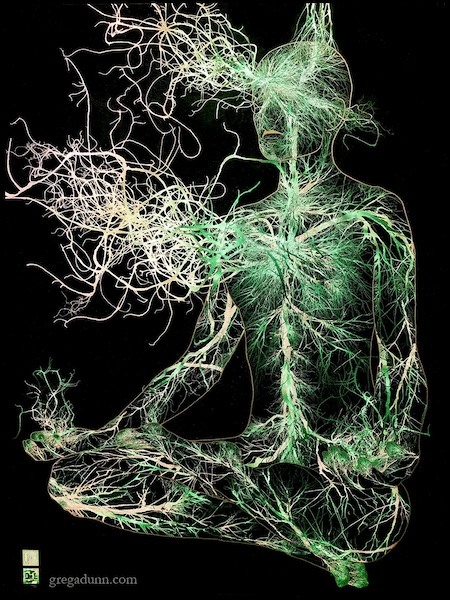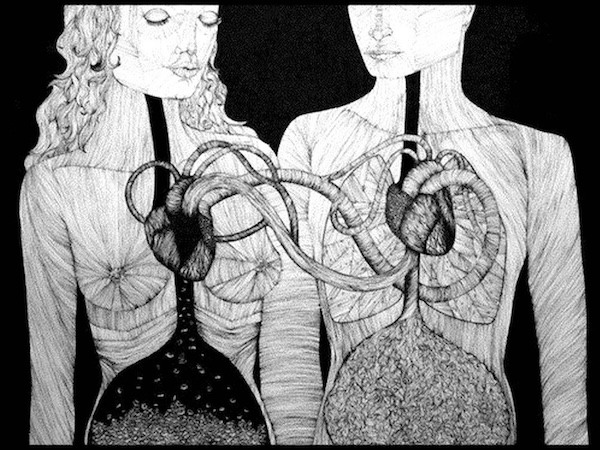A Proven Program with Global Reach
An 8-week program for the general public, Compassion Cultivation Training© (CCT™) draws on insights and techniques from psychology, neuroscience, and contemplative practice. The course integrates evidence-based meditation techniques, interactive discussions, and lectures as well as real-world exercises to put learning into practice. CCT™ is taught worldwide and offers practical skills, tools, and knowledge. As a graduate, you establish the habit of relating to yourself, others, and the world around you from a place of greater understanding, joy, and purpose.

What effects can I expect?
While everyone will have their own unique experience, research has shown CCT™ can lead to:
Increased
Happiness
Calmness
Acceptance of emotions
Self-acceptance
Job satisfaction
Self-caring behavior
Compassion for self and others
Openness to receiving compassion from others
Decreased
Worry and anxiety
Anger
Mind wandering
Emotional suppression
Reports of chronic pain severity

What does CCT™ look like?
- Weekly 2 hour class - including lecture, discussion, and in-class exercises
- Daily meditation practices
- Real-world assignments for practicing compassionate thoughts and actions
The 8-Week CCT Journey
Week 1 - Settling and focusing the mind
Week 2 - Loving-kindness & compassion for a loved one
Week 3 - Compassion for oneself
Week 4 - Loving-kindness for oneself
Week 5 - Embracing shared common humanity and developing appreciation for others
Week 6 - Cultivating compassion for others
Week 7 - Active compassion practice
Week 8 - Integrated daily compassion cultivation practice

What is the history of the CCT™?
2008: establishment of CCARE (Center for Compassion and Altruism Research and Education) at Stanford University School of Medicine
2009: First version of CCT™ completed under the leadership of Thupten Jinpa, Ph.D.
2013: second edition of CCT™, updated with scientific results
2016: The California-based Compassion Institute receives the rights from Stanford University to distribute CCT™ globally and continue to maintain the program
2021: Third edition of CCT™
2023: Global CCT™ Teacher Training started with my participation
2024: First pilot group successfully finished, I became a Certified CCT™ Teacher
Manifestations of the Compassion
When you experience in your daily life that someone:
- feels her life is meaningful and centred on serving a purpose,
- radiates serenity and joy,
- seeks to resolve conflicts constructively,
- surrounded by trustful, respectful and loving relationships,
- acts with unshakeable ethics,
- thinks in terms of interdependence rather than of subordination and superiority,
- lives fearlessly,
- her consciousness is constantly rising, growing, expanding,
- or she is a Good Human...
"What is thy art? To be good." - Marcus Aurelius
What is Compassion?
Compassion is a feeling that arises from witnessing a sentient being's suffering and that turns on the intention to relieve the suffering.
As such, it is also an expression of the capacity to care. We naturally concern ourselves with our own well-being, which is the basis of our ability to act compassionately towards others.
Compassion is fundamentally a relational quality, so it can only manifest in relationships with others. This is also the case with self-compassion, where the essential, defining element is the emotional care of oneself by oneself ("self-to-self relation").
The beauty of compassion is that it is a potential at the core of our humanity, hidden deep within our human nature, that we all have. By cultivating it, we can make it an active force in our daily lives. We can learn to extend our empathic concern even to those we perceive as adversaries.
The Compassion paradox
The climate crisis, environmental destruction, wars, social divisions, hate, loneliness, depression, the fragmentation of communities, individualism turning into nihilism, burnout, and chronic stress can all be traced back to a lack of compassion on a large scale at the individual level. Yet, these issues also present opportunities to cultivate compassion.
Compassion has the power to transform suffering. It can fuel our efforts to improve ourselves, our surroundings, and the world. By wisely applying compassion in our specific circumstances, we can use suffering as a tool to raise our consciousness. This works only when we recognize the power of compassion within us and continually practice its application, committing to integrate it into the deepest layers of our personality. This is one path to self-transformation and the core of self-awareness.
Ultimately, whether or not we take on this work is a decision only we can make—and only we can act on.

A Practice-centred Approach
Talking about compassion—how to unfold it, apply it, and share experiences—is important, but it’s just a mental map. This map helps us plan our direction, stay aware of where we are on the path, and avoid getting lost. However, the journey itself is made by moving forward—by experiencing, trying, doing, and reflecting. In other words, by practicing.
The weekly two-hour group sessions are designed with this in mind. Cognitive learning, or the "teaching" portion, typically lasts no more than half an hour. The remaining hour and a half is roughly split between sharing personal experiences, celebrating progress, and exploring meditation and mindfulness exercises together—practices to continue until the next session.
Each group session also provides plenty of background materials—readings, research, and additional resources—for those seeking more "mental food" on the topic. However, true integration happens through meditation between meetings and by observing and applying the concepts in daily life.
Based on the Buddhist approach
The course is rooted in a thousand-year-old Buddhist approach to cultivating loving-kindness and compassion, with the following key elements:
Loving-kindness and compassion are expressions of pure states of consciousness, and they also serve as pathways to elevate our consciousness. Each of us holds the potential for pure consciousness, which we can realize by choosing to work on our inner world. In Buddhist practice, this inner work follows a well-established and structured training plan as outlined below.

The stages of our "practice plan":
- Week 1—Settling and focusing the mind: The practice of becoming more and more able to see the patterns of feelings, thoughts, and mental energies that are whirling around inside us is the original focus of 'mindfulness' according to the Buddhist method.
- Week 2—Loving-kindness and compassion for a loved one: Experience that the state of mind of loving-kindness and compassion can be activated intentionally. To love, accept, connect, care, and act compassionately are more than emotions but states of consciousness that can be "done" and activated more easily and naturally through practice. Start practising where it is easiest! Practice meditation with the being we love most naturally.
- Weeks 3-4—Compassion and Loving-Kindness for Oneself: Here, we tackle a surprisingly more difficult topic, which is loving and caring for ourselves. This is often the most challenging and crucial part of the entire learning process. We dedicate two full weeks to this essential work to allow for deeper practice and understanding.
- Week 5—Embracing Shared Humanity and Developing Appreciation for Others: This week, we focus on the core of our human nature—the universal need to "love and be loved" and to "care and be cared for." We all share these fundamental needs and form the essence of our common humanity. Deep in our hearts, these desires drive us, yet in our daily lives, we often forget them, and our actions fail to fulfil this universal need. This week's practice helps us reconnect with this truth.
- Week 6—Cultivating Compassion for Others: By connecting to the universal essence of our shared humanity, we learn to extend compassion to everyone we interact with, regardless of our emotional relationship with them. This includes loved ones, friends, neutral acquaintances, and even those with whom we may have conflicts. This week's practice focuses on broadening our capacity for compassion, no matter the nature of the relationship.
- Week 7—Active Compassionate Practice: This week focuses on integrating everything we've learned from weeks 1-6 into our daily lives, grounding it in the present, in the here and now. To support this, we will explore the tong-len technique, a practice from Tibetan Buddhism. Tong-len involves sending compassion to others while taking in their suffering, helping us actively engage with compassion in real-world situations.
- Week 8—Integrated Daily Compassion Cultivation Practice: In the final week, we focus on supporting one another in maintaining a compassion cultivation practice in daily life. We'll explore how to reframe experiences of suffering and emotionally challenging situations as opportunities to practice compassion, helping us stay grounded and committed to this work in our everyday routines. This marks the transition from structured learning to ongoing, personal practice.
In this course, we won’t just learn about compassion; instead, we will practice techniques to cultivate it. That’s why we refer to it as Compassion Cultivation Training rather than Compassion Training. We’ll follow a step-by-step "training plan" and experiment with its various elements. Research indicates that eight weeks is sufficient to begin experiencing the initial positive effects of this training plan. This can provide the motivation to gradually and persistently shape our lives and personalities in a more compassion-centered direction.

A Lineage of Trustworthy People
The foundations of CCT™ have been established by generations of Buddhist practitioners who have exemplified manifestation of compassion as their life's mission. This process can be envisioned as a generational chain, where knowledge and methods have been preserved, nurtured, and developed over time.
A key figure in this lineage is the 14th Dalai Lama, who has devoted his life to embedding compassion as a cultural norm in the fabric of humanity. His vision has also inspired the development of CCT™ at Stanford, with Dr. Thupten Jinpa playing a central role. For decades, Dr. Jinpa has been the Dalai Lama’s principal translator and cultural bridge between Tibetan culture and the West. The Compassion Institute’s staff, invited speakers, and researchers are also remarkable individuals committed to advancing compassion. Nearly 60 people worldwide have completed the global CCT™ teacher training in 2024, and it has been an enriching experience for me to learn with such dedicated individuals.
Through this training, we invite you to join a circle of individuals committed to cultivating loving-kindness and compassion—first in your own life and then in the world around you.
The Science of Compassion
In modern societies, people primarily trust in science, valuing truths that are proven through scientific methods. Recognizing this paradigm, the rise of positive psychology in recent decades—particularly in the Western world—can be attributed to researchers using scientific approaches to validate what philosophical traditions have long taught: the key to elevating consciousness is the cultivating of loving-kindness and compassion.
The developers of CCT™ are actively engaged in this process. A key aspect of the course's design was to provide a secular framework through the following methods:
- The course employs a universally human language and approach, accessible regardless of one's worldview or religion.
- Additionally, what is presented is supported by scientific methods.

UPCOMING CLASSES
We offer CCT™ courses continuously, approximately every quarter. Please click the button to the right for more information on the schedule and other conditions of the upcoming classes.
As a coach and consciousness cultivation mentor, my primary focus is supporting my clients' self-transformation. My intention is to help them unfold their capacity for compassion so they can gradually elevate their consciousness.
According to my belief, compassion is one of the most essential qualities of our humanity. In my view, consciousness cannot exist without compassion. This perspective has been shaped by nearly 15 years of Vajrayana Buddhist studies and practice, moreover propelled me to a board president role in the spiritual organization.
As an ICF Master Coach and mentor, I have supported over a hundred clients in transforming their inner subconscious narratives about themselves through the application of compassion, thereby advancing their level of consciousness.
My participation in the CCT™ teacher training was motivated by a desire to integrate group work into the realm of compassion cultivation and personal self-transformation processes within a secular and methodologically sound context.
Before starting my coaching practice in my early forties, I gained experience as a systems architect, team leader, and senior executive. With this background, I also co-founded an organizational development and consulting company.


.png?width=193&height=193&name=ACT-logo%20(1).png)